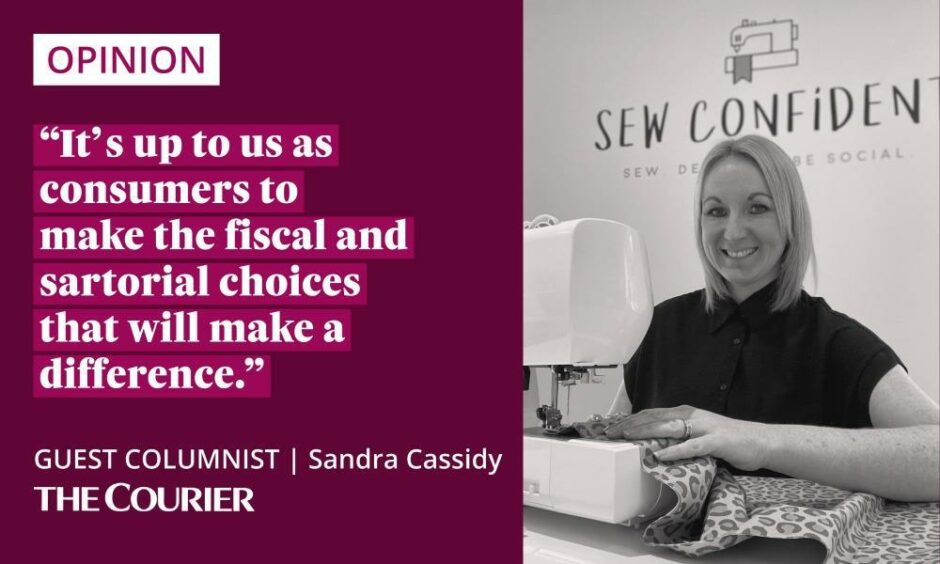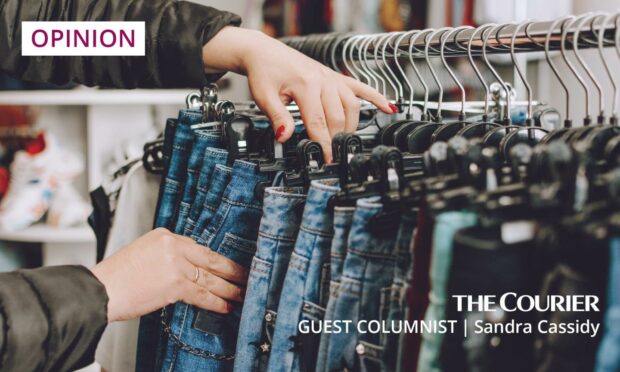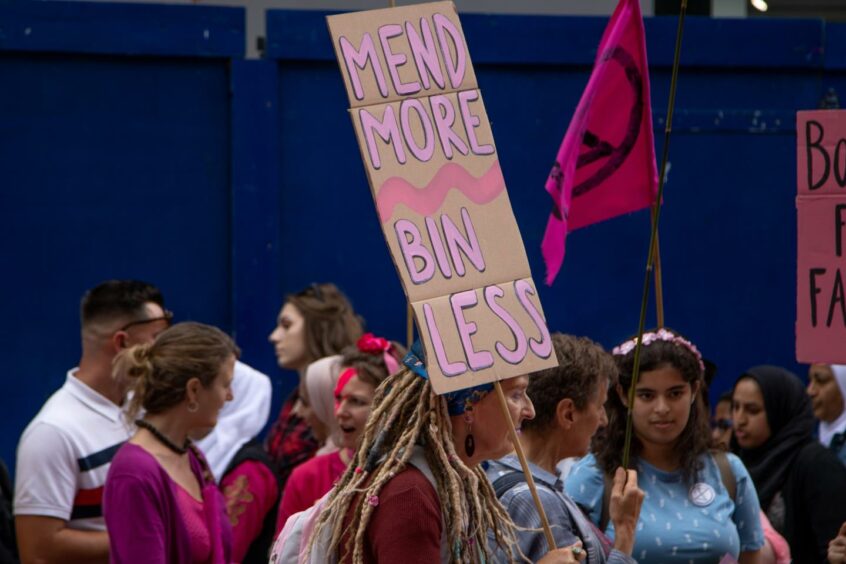The negative impacts of fast fashion are becoming hard to ignore.
Many of us will have felt horrified and guilty to realise we’ve contributed to the 300,000 tonnes of used clothes that are burned or buried in landfill every year.
Our wardrobes are groaning with things we’ve only worn a handful of times that were all too easy to pick up for just a few pounds on the high street or online.
It used to be the done thing; buy something new to wear for almost every occasion.
Shops like Primark, Matalan, Boohoo and ASOS offer an incredible range of styles that won’t break the bank, encouraging the regular habit of splurging £50 for a quick fashion, or retail therapy fix.

But these are bad habits.
They’re bad for the design industry, for the environment and the for the workers making these clothes.
Most of the clothes sold in the UK are made in countries in which workers’ rights are limited or non-existent.
Poorer populations often have no choice but to work for any salary, in any working conditions.
It’s up to us as consumers to make the fiscal and sartorial choices that will make a difference.
And here in Dundee we have people setting some great examples.
Fast fashion alternatives start at home
Dundee is home to some of Scotland’s top fashion brands and designers such as Hayley Scanlan and Kerri Aldo.
These designers create ethical and sustainable clothing, made here in the city.
If you're watching @nextinfashion you'll have seen Dundee's own Hayley Scanlan competing for the prize ✂️🧵
So cool to see Scotland represented on the show, but not surprising! Scotland is home to many wonderful fashion designers and here are a few you should be following 👇🏽 pic.twitter.com/iN2RuBFZ5t
— V&A Dundee (@VADundee) January 31, 2020
Their quality, long lasting, fashionable pieces use eco-friendly fabric to create zero waste clothing.
These independent fashion houses are setting the standard for the kinds of garments that will last a lifetime, in stark contrast to the fast fashion items, whose appeal soon declines.
Thinking about where we spend our money could help offset the estimated 26.6kg of clothing bought by each person in the UK every year.
But it’s not the only change we can make.
Sometimes considered old fashioned, sewing is an incredibly versatile life skill that is making a comeback as people rediscover how useful it is.
It’s also a creative and social outlet.
Over the past three years our Sew Confident Studio has helped more than 1,000 people learn everything from sewing and knitting to crocheting and quilting.
Our classes teach valuable skills, as well as the importance and viability of re-purposing old into new.
Pandemic encouraged new ways of thinking
During lockdown,when shops weren’t open and deliveries were slow people had to embrace the make do and mend mentality.
Our customers started thinking differently about the textiles hiding in their homes and how they could use them. And now we see all sorts of fabrics brought to our classes.
People have learned how to give their own clothes a brand-new lease of life.
Christmas fabrics are in! What #sewing project will you be making for the festive season? 🎅🎄https://t.co/qjlmKVxT8W pic.twitter.com/Sn9N0CKXP6
— Sew Confident (@SewConfident) October 7, 2021
And they are also looking at charity and vintage shopping with new eyes.
Garments which catch their eye can be taken in, up and let out to make them fit.
So many items can be repurposed. They don’t need to end up in landfill.
It might seem complicated but it’s really not. With a little confidence, you can achieve so much.
A sewing and sustainability revolution is happening here in Dundee and it’s fantastic to see people move away from fast fashion trends as they realise they can make sustainable choices in a disposable society.
Sandra Cassidy is the owner of Sew Confident Dundee.

